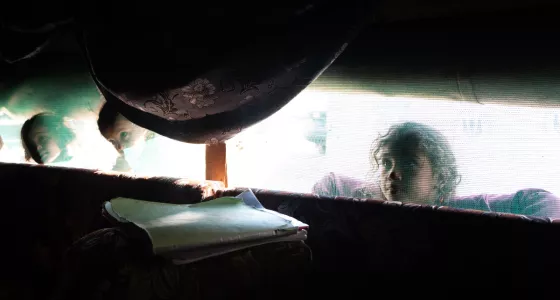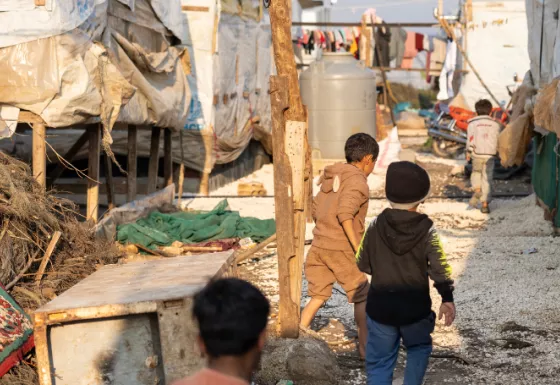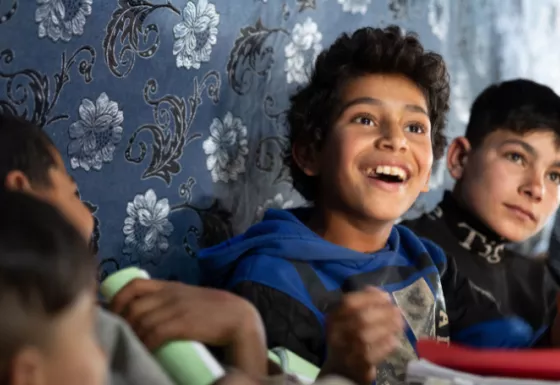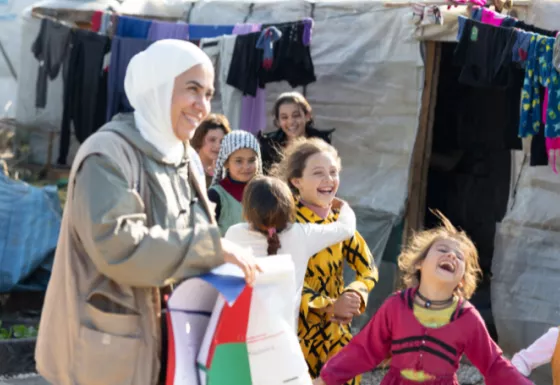In the remote Akkar region of northern Lebanon, hope arrives each week, not in grand gestures, but in boxes, worksheets, and games made from Lego bricks.
This corner of the country is home to around 99,000 Syrian refugees, scattered across hundreds of makeshift settlements. For families who fled war, the idea of returning still feels too dangerous. So, they stay, building lives as best they can in tents that flood with rain and freeze in the winter.
War Child, working with local partner Akkar Network for Development, is bringing education directly into these settlements, nine of them, plus one learning centre, offering children not just lessons, but a lifeline.




